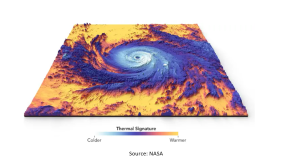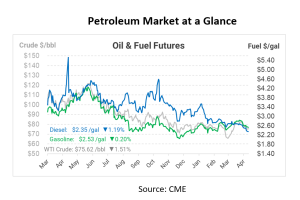
Are hurricanes getting worse? New study says yes
Do you feel like we’re getting hit with more hurricanes and storms lately? It sure seems that way and turns out you might be right. A recent study released by the Journal Science Advances found that rising global temperatures have put us on a path to see even more severe hurricanes heading toward the East and Gulf Coasts of the US, with Florida being a potential hot spot.
The study’s lead author, Karthik Balaguru, a climate scientist at the Pacific Northwest National Laboratory, explains that the changes in the steering currents may drive storms nearer to the United States. In a worst-case environmental scenario, the number of hurricanes hitting parts of the US coast could increase by one-third by the end of the century.
The research predicts that the central and southern regions of the Florida Peninsula will experience a significantly larger increase in hurricane landfalls. The change in air currents is a result of the warming of the equatorial eastern Pacific Ocean near South America’s coast, which creates a chain reaction through Rossby waves. Also known as planetary waves, Rossby waves naturally occur largely due to the Earth’s rotation and affect the planet’s weather and climate.
The flow of these waves can cause a type of swirly motion in the Gulf of Mexico, going counterclockwise. This affects wind shear — the difference in speed and direction between high and low winds up in the sky. High wind shear can disrupt a developing storm, so declining wind shear means storms can get much stronger.
The Recipe for a Hurricane
According to NASA, hurricanes are made of 4 main ingredients:
- warm ocean water
- lots of moisture in the air
- low vertical wind shear
- a pre-existing disturbance (a cluster of thunderstorms, for example)
In the same way that we need a precise blend of ingredients to bake a tasty cookie, a hurricane relies on specific conditions to form and strengthen. Over- or under-using any ingredient can result in a flat, dry, or crumbly cookie. Likewise, for hurricanes, if any of the main components are changed significantly, the storm can’t form or will weaken.
When a hurricane forms, experts must determine where it’s headed and how strong it’ll be when it arrives. A hurricane’s path mostly depends on the big weather patterns happening around it. If it moves over land, it brings along strong winds, tons of rain, risky storm surge, and sometimes even tornadoes.

The image above illustrates the Thermal (heat) image view of Category 5 Hurricane Maria in 2017, as seen by NASA’s Terra satellite. Yellow and orange are the warm ocean waters, and blue and white are the hurricane’s tall, cool cloud tops.
Emergency Response Program
When you’re dealing with the risk of hurricanes disrupting your operations, and if your business relies on non-stop fuel to keep going, you need to be prepared. With adequate support and strategic planning, you can successfully mitigate and overcome the challenges posed by these powerful storms. Don’t wait for the next hurricane season to secure a plan. Planning ahead is the key to keeping your business up and running in those situations.
Mansfield Emergency Response Fuel Program is designed for organizations with little margin for downtime. Whether you need backyard, mobile, or generator fueling for your facilities or vehicles, Mansfield’s extensive delivery network and fuel supply points ensure your business will be operational.

This article is part of Daily Market News & Insights
Tagged:
MARKET CONDITION REPORT - DISCLAIMER
The information contained herein is derived from sources believed to be reliable; however, this information is not guaranteed as to its accuracy or completeness. Furthermore, no responsibility is assumed for use of this material and no express or implied warranties or guarantees are made. This material and any view or comment expressed herein are provided for informational purposes only and should not be construed in any way as an inducement or recommendation to buy or sell products, commodity futures or options contracts.





